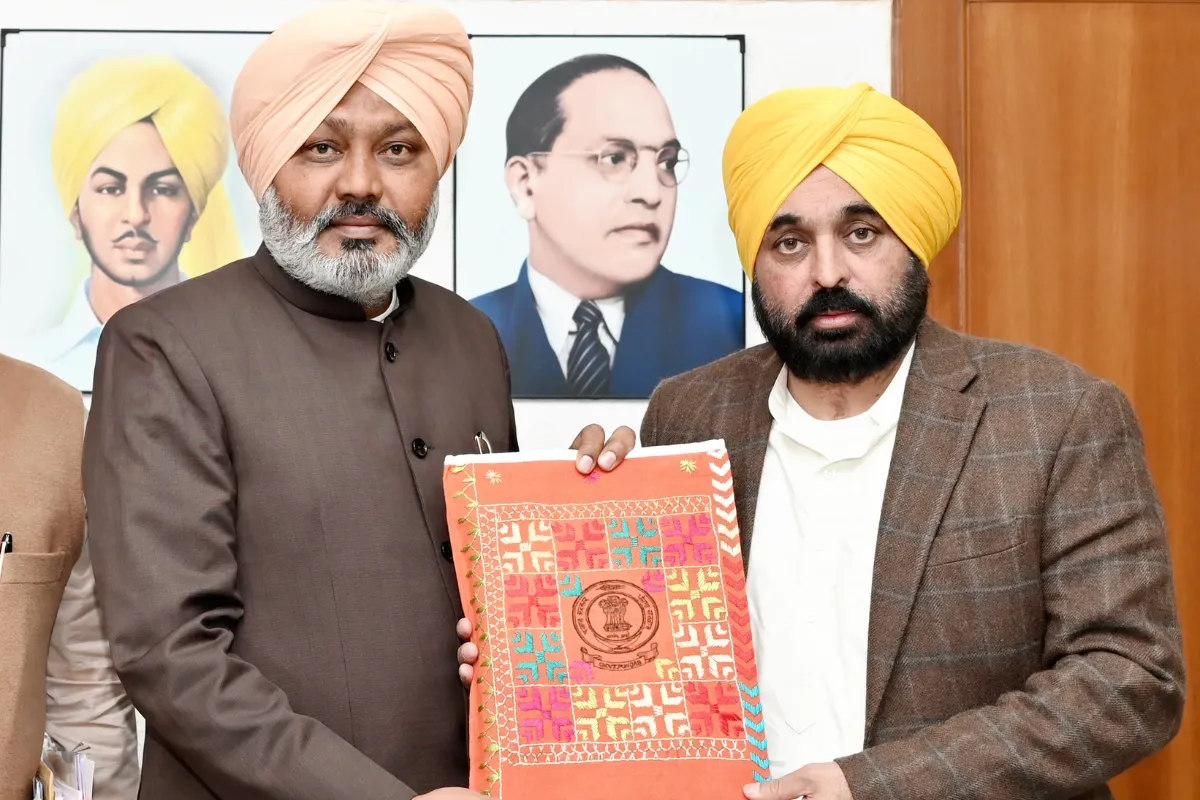Punjab Chief Minister Bhagwant Singh Mann on Tuesday hailed the budget 2024-25 presented by the Finance Minister Harpal Cheema in the state assembly and described it as a step forward towards carving out ‘Rangla Punjab’ through inclusive, balanced and comprehensive development of the state.
In a statement issued here today, the Chief Minister said that the ‘zero tax’ budget had taken care of all the core sectors i.e. Health, education, Power, infrastructure, Industry, Sports, social security and others besides pushing the state in the orbit of high growth trajectory. He said that this budget will further propel the tempo of overall growth and development of the state besides ensuring prosperity of all sections of society especially the poor and underprivileged ones. Bhagwant Singh Mann said that for the first time the budget of the state has crossed the figure of Rs 2 lakh crore as the Punjab government has initiated several path breaking initiatives for public welfare.
The Chief Minister said that the Tax Revenue has been much higher i.e. 13% as against compound annual growth rate of 8% during 2012-17 and 6% during 2017-22 adding that this shows that delivery depends upon clarity of thought and determination to convert thought into actions. He said that his Government had promised “Rangla Punjab” and has been focusing on key areas such as Good Governance, Education and Health. Bhagwant Singh Mann said that an allocation of Rs 13,784 crore has been earmarked for the agriculture and allied sectors in the next financial year.
The Chief Minister said that to bring the farmers out of the rut of wheat paddy circle an allocation of Rs. 575 crore has been made in Financial Year 2024-25 for various Crop Diversification Schemes. He said that allocation of Rs 9,330 crore in Financial Year 2024-25 towards power subsidy for agriculture will also ensure the welfare of farmers. Bhagwant Singh Mann said that the proposal to construct a new Malwa canal project with an aim to cover approximately 1,78,000 acres, benefiting the districts of Bathinda, Faridkot, Ferozepur and Muktsar will reduce reliance on groundwater and optimize the under-utilized Punjab’s share of Beas-Satluj river water during the Rabi period.
The Chief Minister said that for the first time a budgetary outlay of Rs 16,987 crore has been made in Financial Year 2024-25 for the Education sector which is around 11.5% of the Total Expenditure. He said that Rs 100 crore have been kept for schools of eminence while Rs 10 crore have been earmarked for schools of brilliance to give further fillip to education sector in the state adding that Rs 10 crore has been proposed to establish “School of Applied Learning” for imparting skill education to students and another Rs 10 crore for Schools of Happiness for overall grooming of the students. Bhagwant Singh Mann said that a budget of Rs 5264 crore has been made available for the health sector to provide quality health services to people.
The Chief Minister that the budget for 2024-25 will also bring in far more financial discipline with economic prudence in narrowing down the fiscal deficit with a focus on the enhancement of revenue through resource mobilization. He said that with this budget our state will now reach the zenith of glory in terms of development and prosperity. Bhagwant Singh Mann envisioned the current budget as a roadmap for the revival of the industrial sector and imparting fresh impetus to the stagnated agrarian economy of the state.
The Chief Minister said that the current budget is also a milestone which will go a long way in setting new parameters of growth and development to cherish aspirations of people of Punjab in near future. He said that the budget is reflective of pro-people policies of the state government adding that it aims to serve the weakest of the weak and poorest of the poor sections of society in the right earnest. Bhagwant Singh Mann said that the budget is the outcome of the pragmatic approach of the AAP government to achieve the objective of overall development and prosperity in a holistic manner.












